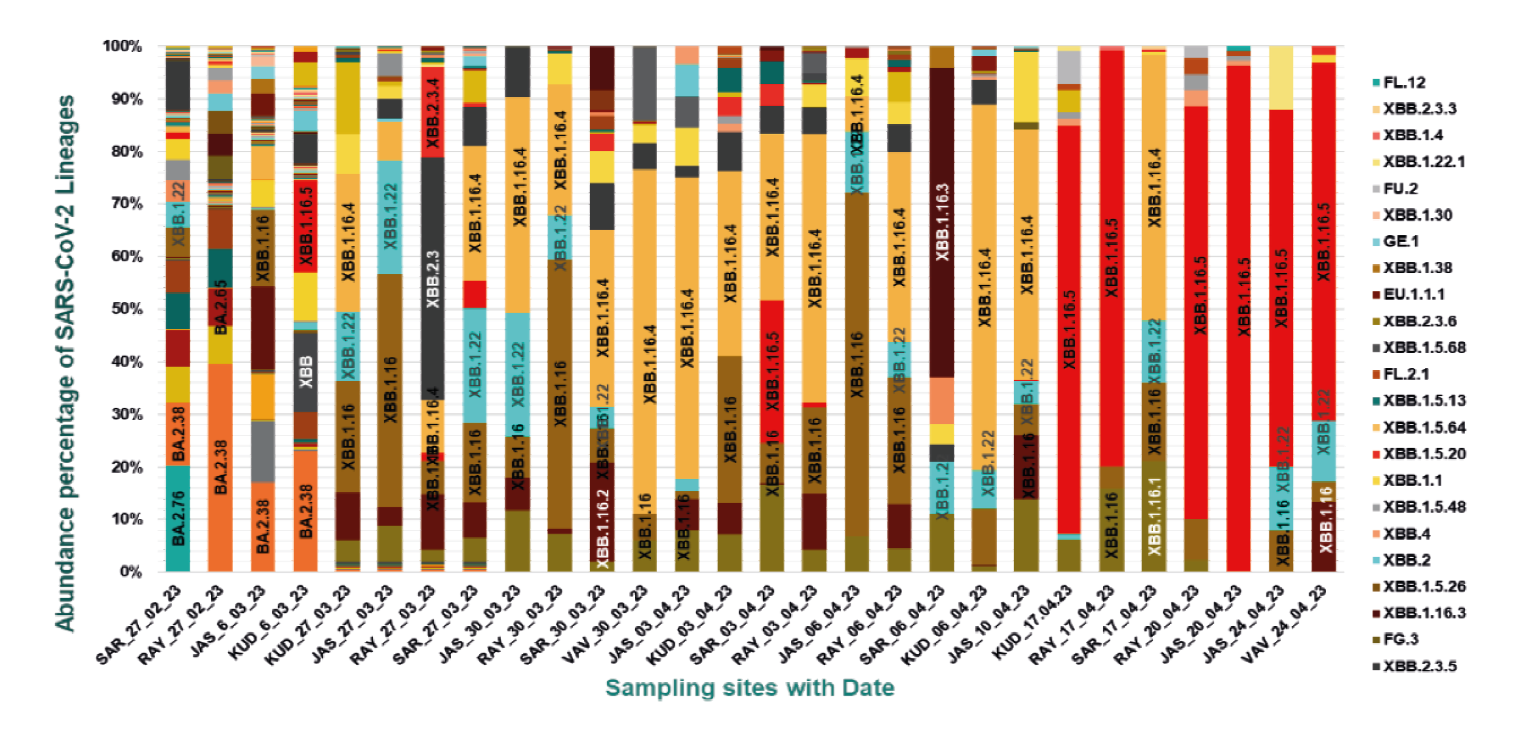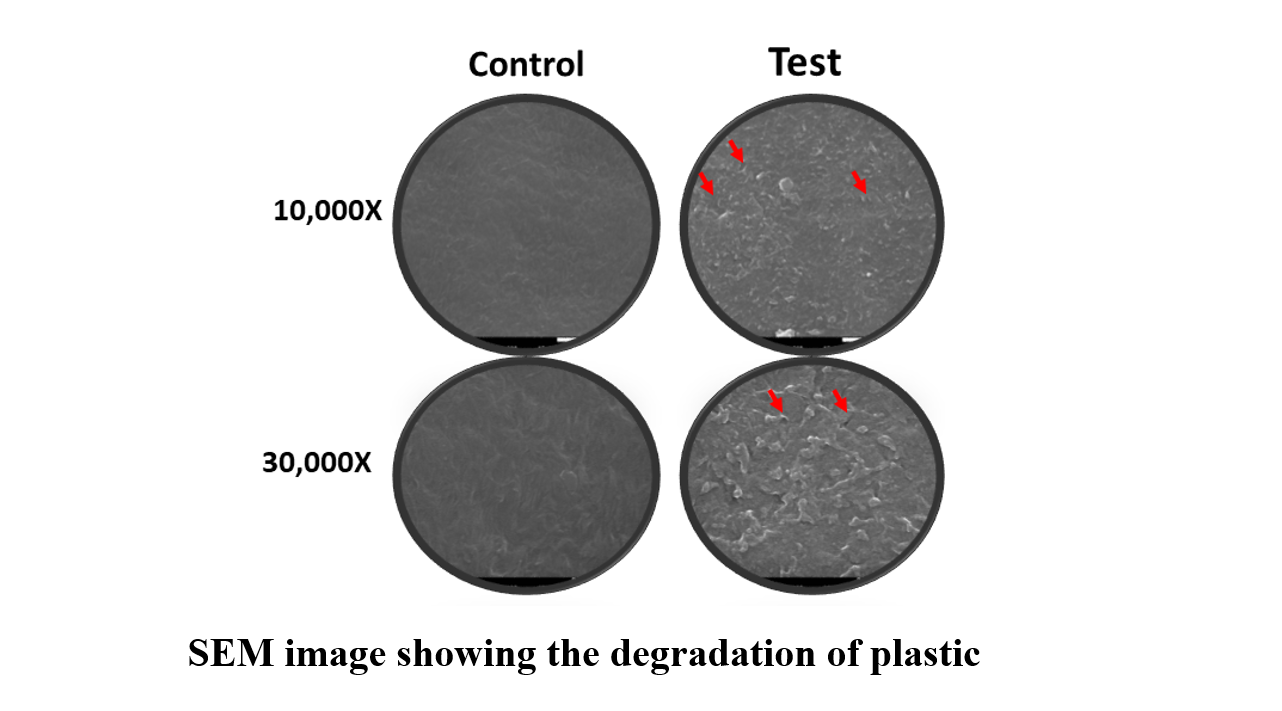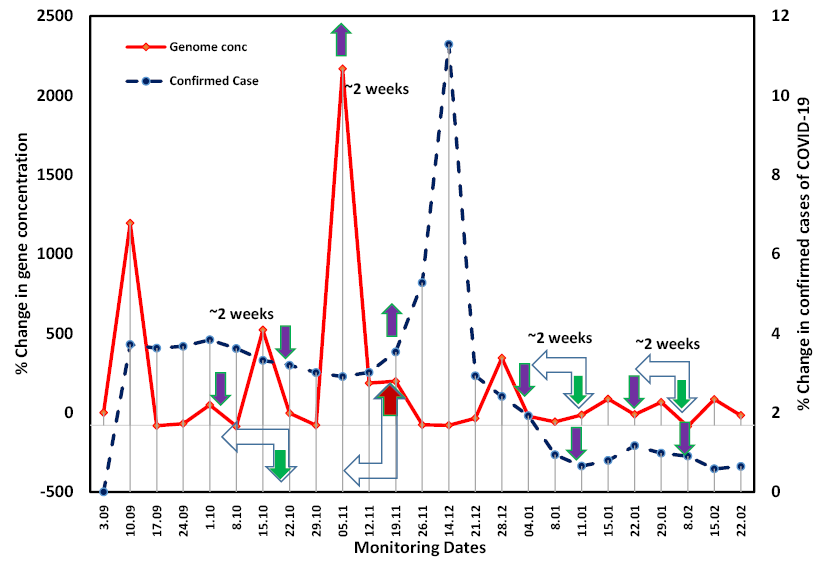Research Areas
Environmental Biotechnology
Ongoing Projects
Genomic surveillance of SARS-CoV-2 in India: Indian SARS-CoV-2 genomics Consortium(INSACOG)-Phase II for sewage surveillance

The wastewater-based SARS-CoV-2 surveillance has been carried out in major cities of Gujarat state i.e. Gandhinagar, Vadodara, Rajkot as a part of INSACOG surveillance.
Major objectives of this project are:
- To access the SARS-CoV-2 viral load in wastewater samples from sewage treatment plants (STPs) using RT-qPCR.
- Whole genome sequencing and analysis of RT-qPCR positive samples for analysing new genomic variants.
- Sequence informatics: identi¬fication and reporting of new genomic variants of SARS-CoV-2.
Development of neural network models by innovatively expanding conventional WBE dataset for the monitoring of variability of COVID-19, variants of SARS-CoV-2, and anti-drug resistance in four major cities of India

Objectives:
- To establish the methodology of WBE with good sensitivity and reliability.
- To apply the developed approach for comparison of prevalent SARS-CoV-2 variants among different (four) cities of India.
- To produce long-term monitoring database on the spatial and temporal variability of COVID-19, variants of SARS-CoV-2.
Development of Omics based treatment technologies for Textile waste

We have consortia of bacteria which efficiently decolorize various textile dyes. Moreover, we have also cloned and expressed enzymes which can decolorize textile dyes more rapidly than the conventional microbial methods.
Completed Projects
Development of bioremediation technology for solid waste degradation: A case study on Pirana MSW dumping site

The Gujarat is a residence of numerous caste and tribal groups, which reveals the different genetic traits. Some of tribal groups have shown both a high prevalence of β-thalassaemia trait (6.3 to 13.6%) may be due to consanguineous marriage. A comprehensive database of the spectrum of mutations causing thalassemia in the Indian and Gujarat population is necessary. Each population group in which the disease is prevalent has a different spectrum of β globin mutations and a few mutations account for most of the alleles. Therefore, the emphasis should be given to the prevention of disease by studying the mutation profiling of sickle cell diseases and thalassemia in vulnerable population of Gujarat which can reduce the overall disease burden and mortality associated with it.
Publications:
1. Dantroliya, S., Joshi, C., Mohapatra, A., Shah, D., Bhargava, P., Bhanushali, S., Ramesh Pandit ... & Joshi, M. (2022). Creating wealth from waste: An approach for converting organic waste in to value-added products using microbial consortia. Environmental Technology & Innovation, 25, 102092. (IF 5.263).
2. Kumar, R., Pandit, P., Kumar, D., Patel, Z., Pandya, L., Kumar, M., Joshi, C. and Joshi, M., 2021. Landfill microbiome harbour plastic degrading genes: A metagenomic study of solid waste dumping site of Gujarat, India. Science of The Total Environment, 779, p.146184. (IF 7.963).
Weekly Surveillance of Wastewater for SARS-CoV-2 Gene Detection in Ahmedabad for Pandemic Curve Monitoring-UNICEF funded

The Gujarat is a residence of numerous caste and tribal groups, which reveals the different genetic traits. Some of tribal groups have shown both a high prevalence of β-thalassaemia trait (6.3 to 13.6%) may be due to consanguineous marriage. A comprehensive database of the spectrum of mutations causing thalassemia in the Indian and Gujarat population is necessary. Each population group in which the disease is prevalent has a different spectrum of β globin mutations and a few mutations account for most of the alleles. Therefore, the emphasis should be given to the prevention of disease by studying the mutation profiling of sickle cell diseases and thalassemia in vulnerable population of Gujarat which can reduce the overall disease burden and mortality associated with it.


